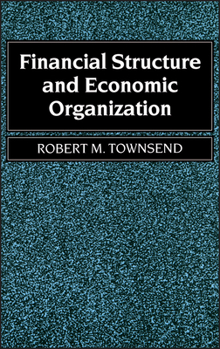Financial Structure and Economic Organization
This volume focuses on how groups of economic agents organize themselves, with a special interest in the financial arrangements they adopt. This is achieved primarily through the development and refinement of neoclassical models incorporating transactions costs and impediments to trade, but also through parallels with the organization of real economies drawn from the history of early Europe. The author demonstrates that the key elements determining financial structure and economic organiation in history are key features in the described environments of modern economic models. These include the facts that economic agents are separated in time and space; economic life is full of uncertainty; there is often private information among agents; there are sometimes difficulties of communication among agents; and there can be problems in getting agents to commit to arrangements, the difficulties of costly and limited enforcement. Analyzing these central issues both in theory and in history, Professor Townsend makes a highly original contribution to the understanding of the diverse forms of economic and financial organization.
Format:Hardcover
Language:English
ISBN:1557860394
ISBN13:9781557860392
Release Date:January 1990
Publisher:Wiley-Blackwell
Length:552 Pages
Weight:2.15 lbs.
Dimensions:1.4" x 6.0" x 9.0"
Customer Reviews
0 rating





